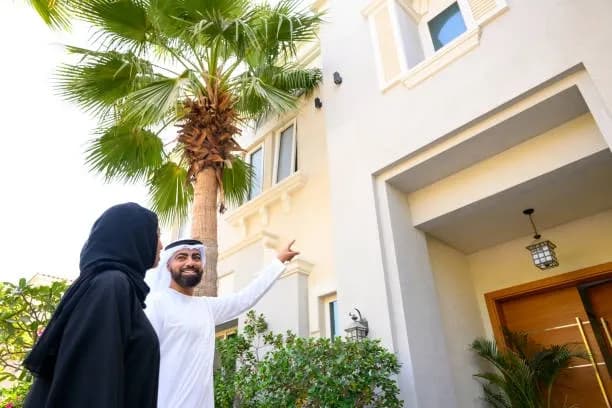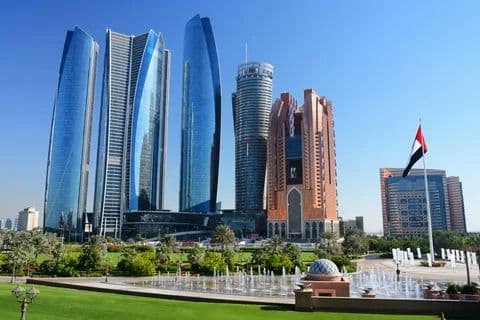Dubai’s real estate market continues to attract global investors with promises of high returns, luxury living, and tax-free ownership. However, as with any investment, purchasing property in Dubai carries potential risks. From legal pitfalls to market fluctuations, being unaware of these dangers can turn a dream deal into a financial setback. This comprehensive guide explores the risks of buying property in Dubai and how to avoid them for a safer investment.
Risks of Buying Property in Dubai
When it comes to the risks of buying property in Dubai, several factors can impact your investment negatively. Although the city offers modern infrastructure and global appeal, real estate buyers must consider a range of economic, legal, and market-related issues before making a decision. Here are the most common risks investors face when purchasing property in Dubai.
Dubai’s Property Market During a Recession
Economic downturns, whether global or regional, can seriously affect the property market. During a recession, property prices may decline, leaving investors with assets worth less than their original purchase price.
The risks of buying property in Dubai during economic slumps are real, especially when unemployment rises or tourism slows down. With Dubai’s economy closely tied to international trade and oil, any global disturbance can lead to reduced rental yields and slower capital appreciation. Buyers should closely track Dubai Real Estate Market Insights to anticipate such downturns.
Property For sale in Dubai
Find properties for sale in Dubai with floor plans, mortgage options, and service charges. Explore villas, apartments, and ready-to-move-in homes.
Oversupply Problems in Dubai Real Estate
One of the most recurring risks of buying property in Dubai is oversupply. Developers have launched thousands of residential units in anticipation of high demand, especially around events like Expo 2020. However, in many cases, the demand hasn’t kept pace.
The result? Falling rental prices, longer vacancy periods, and slower property appreciation. For investors looking for consistent rental income, oversupply can pose a significant threat. Being aware of oversupply trends is a key part of Avoiding Property Risks in Dubai.
Persian Gulf Political Tensions: Should You Worry?
Geopolitical instability in the Persian Gulf can influence investor confidence. Although Dubai is generally stable, it exists in a region often affected by conflicts and diplomatic tensions.
This creates uncertainty among foreign investors, particularly those unfamiliar with the local landscape. While the direct impact on property is usually limited, sudden changes in foreign policy or regional tensions could affect the economic outlook. It’s one of the risks of buying property in Dubai that is often overlooked but should not be ignored.
Why Some Investors Avoid Buying Real Estate in Dubai
Despite its appeal, some international investors avoid Dubai’s real estate market altogether. The reasons vary, from unclear exit strategies and low transparency to the complex legal landscape.
Concerns about enforceability of contracts, reliance on developers, and uncertain project timelines are key deterrents. These concerns highlight the importance of understanding the Dubai Property Investment Guide before committing to any purchase. Knowing why some investors stay away helps you better understand the risks of buying property in Dubai.
Market Volatility and Economic Uncertainty
The real estate market in Dubai has experienced significant highs and lows over the past two decades. Market cycles can be unpredictable and are affected by factors such as oil prices, global financial trends, and local regulation changes.
This volatility contributes to price fluctuations and affects both short-term returns and long-term gains. If you’re looking to buy property in Dubai, it’s crucial to time the market wisely. Engaging with real estate agents in Dubai who understand market trends can help you reduce exposure to this risk.
Legal and Regulatory Challenges to Be Aware Of
Dubai’s real estate laws have evolved significantly, but challenges remain. Foreign investors must navigate a legal framework that may differ considerably from their home country.
Issues such as ownership rights, contract enforceability, and visa regulations can cause confusion. Additionally, buying in certain zones (freehold vs leasehold) can impact the type of ownership you receive. Failing to understand the legal landscape is one of the top risks of buying property in Dubai, making legal guidance essential for Avoiding Property Risks in Dubai.
Financial Risks and Hidden Costs of Buying Property
The listed price of a property in Dubai often excludes several mandatory charges. These can include Dubai Land Department (DLD) fees, agency commissions, service charges, and maintenance costs.
Unaware buyers may find themselves paying far more than expected. Moreover, mortgage terms can be strict, with high interest rates and requirements for non-residents. A lack of transparency in some deals can lead to unexpected financial obligations, increasing the risks of buying property in Dubai significantly.
Developer and Project Delivery Risks
Buying off-plan properties is popular in Dubai due to lower prices and flexible payment plans. However, many projects have faced delays, cancellations, or major changes in design.
This presents a serious concern for buyers who rely on delivery timelines for occupancy or rental income. When comparing Off-Plan vs Ready Property Dubai, ready properties tend to carry lower risk. Investors should research developers thoroughly and examine their track record to mitigate delivery risks.
Future Market Projections and Investment Outlook
While current projections for Dubai real estate are optimistic, long-term forecasts remain uncertain. Changing government policies, environmental concerns, and shifts in population demographics can all impact future returns.
Investors should not assume perpetual growth. Instead, they should study Dubai Real Estate Market Insights and factor in potential changes. The failure to account for future risks is a major pitfall in real estate investing and can result in lower-than-expected ROI.
How to Mitigate Risks and Make Informed Decisions
Understanding the risks of buying property in Dubai is only half the battle. Smart investors take proactive steps to reduce exposure and secure their assets. Here’s how:
- Work with RERA-certified real estate agents in Dubai.
- Avoid impulsive purchases based on marketing alone.
- Choose well-established developers with proven records.
- Review all documents with a real estate attorney.
- Inspect properties personally, even off-plan models.
- Always budget for hidden costs and additional fees.
- Compare the benefits of Off-Plan vs Ready Property Dubai before deciding.
- Read the Dubai Property Investment Guide for updated regulations.
Professional advice, due diligence, and clear financial planning are key to Avoiding Property Risks in Dubai.
Make a Safe Investment - Get Expert Advice Before Buying Property in Dubai
At Roofs & Roots, we specialize in helping investors make safe and profitable property purchases in Dubai. Whether you’re buying your first home, investing in rental income, or expanding a portfolio, we offer complete end-to-end support.
Our experienced team guides you through every step, from selecting the right property for sale in Dubai to handling legal paperwork and understanding market trends. We prioritize transparency and long-term value. If you want to avoid the risks of buying property in Dubai, our experts are ready to assist you with tailored solutions and insider insights.
Contact us today to make a secure and informed real estate investment in Dubai.
FAQs
What are the disadvantages of buying property in Dubai?
Disadvantages include legal complexity, market volatility, oversupply risks, and high transaction costs. The risks of buying property in Dubai also extend to possible project delays and developer reliability issues, particularly in off-plan investments.
Is it still worth buying property in Dubai?
Yes, if approached strategically. Despite the risks, many investors achieve strong returns, especially in prime locations. By understanding market dynamics and Avoiding Property Risks in Dubai, buying property can still be a smart move.
Are there any tax implications for buying property in Dubai?
Dubai does not impose income tax on rental income or capital gains. However, there are upfront fees like the 4% DLD registration fee. Always seek updated tax guidance from professionals before buying.
What to check before buying property in Dubai?
Buyers should check property ownership status, developer reputation, service charges, payment plans, legal documents, and market conditions. Reading the Buying Property in Dubai Tips and consulting experts will help ensure a smooth process.






